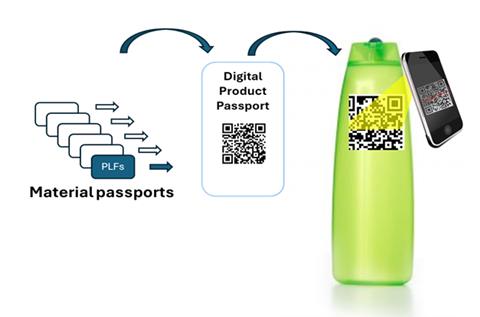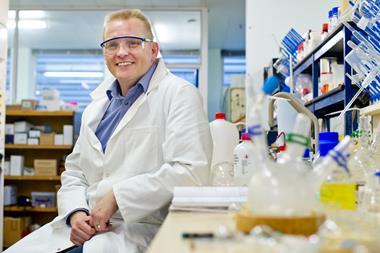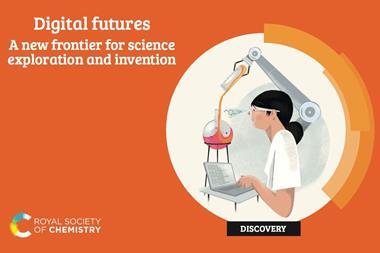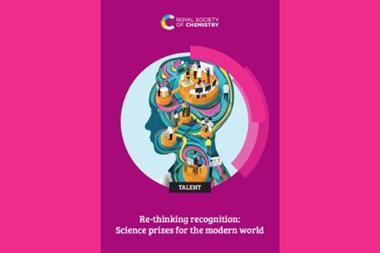
The way we make, track, and trust products is on the cusp of a revolution, and polymers in liquid formulations (PLFs) are at the heart of it. We’re excited to update you on a major step forward for the Sustainable PLFs 2040 initiative: the Royal Society of Chemistry has convened a new Digital Product Passport (DPP) Corporate Alliance, bringing together industry giants like Unilever, BASF and Reckitt, alongside suppliers and retailers across the PLFs value chain.
A Digital Product Passport (DPP) is a digital record that stores key information about a product’s materials, environmental impact, and full lifecycle and potentially how to safely dispose of biodegradable or compostable components of the product. Under the EU’s Ecodesign for Sustainable Products Regulation (ESPR), digital product passports (DPPs) will become mandatory for nearly all physical products sold in the EU from 2027 onwards.
The aim of our new alliance is to pro-actively co-develop the first harmonised tools and standardised frameworks for PLF material passports that will be used to create DPPs for PLF-containing products (see below), years ahead of the incoming ESPR. By creating a shared system for transparency, we can not only help companies comply with fast-approaching legislation but also give consumers unprecedented insight into the sustainability of everyday products.

Why Digital Product Passports matter now
1. Empowering consumers with radical transparency
Imagine scanning a QR code on a bottle of shampoo or a tin of paint and instantly seeing the product’s full journey: the origin of raw materials, the carbon footprint, and where it ends up after use. DPPs promise a level of openness that can transform how consumers evaluate and trust brands.
2. Staying ahead of sweeping regulations
The EU’s ESPR will require DPPs for nearly all products, starting with textiles and batteries in 2027. And PLF-containing goods like coatings, personal care items and sealants and adhesives are expected soon after. Businesses that don’t prepare for this are risking costly retrofits or exclusion from European markets.
3. Enabling circular innovation at scale
By unlocking accurate, product-level lifecycle data, DPPs can support reuse, refill, recycling, and take-back schemes. This isn’t just about compliance, it’s a catalyst for new business models and the infrastructure needed for a circular economy.
4. Optimising supply chains and product integrity
DPPs can give companies new levels of visibility, from raw material sourcing through to end-of-life. This will help reduce reputational risk, strengthen safety, and verify sustainability claims.
5. Aligning with net zero ambitions
Detailed carbon and recyclability data in each DPP can make it easier to produce credible, granular sustainability reports, which are a key tool in meeting Net Zero goals.
6. Shaping sustainable consumption
The alliance’s work will go beyond technology: it will establish standards for how PLFs material passports are designed and implemented for use in digital product passports, ensuring they meet the needs of both businesses and consumers.
Why focus on PLFs?
PLFs, key ingredients in millions of industrial and consumer products from paints to personal care and cleaning products, are a massive sustainability challenge. Often overlooked, PLFs are the performance backbone of countless everyday products: they keep paint on walls, enable detergents to clean at low temperatures, act as flocculants in water treatment, provide hair conditioning in shampoos and precision in agricultural spraying. PLFs perform essential functions, and without them these products simply wouldn’t work as intended. Around 36 million tonnes of PLFs are produced every year, almost all of which go unrecovered or unrecycled. By focusing on PLFs, our initiative is tackling a crucial part of the materials economy.
Through pre-competitive collaboration across the value chain, we aim to avoid fragmented approaches that would leave businesses duplicating efforts. Instead, we’re creating a shared blueprint for how the industry can move towards sustainable, transparent, and circular PLFs together.
Connecting the dots: from roadmap to implementation
The Digital Product Passport Corporate Alliance is a part of the RSC’s Sustainable PLFs 2040 initiative implementing the PLFs roadmap. This charts a path away from fossil-derived PLFs and towards circular, low-carbon alternatives, underpinned by two key missions: 1) to develop and scale biodegradable PLFs; and 2) to advance circular infrastructure by 2030.
The DPP will enable broader benefits towards the EU sustainability strategies including the Green Deal, REACH regulations, and the Circular Economy Action Plan.
A key focus of the alliance’s work in developing material PLFs passports will be to define and agree on relevant sustainability targets for both single-use PLFs such as those used in personal and household cleaning products and durable PLFs found in products like paints, sealants and adhesives. These targets will help define what ‘sustainable’ means for single-use and durable products, and set benchmarks for improvement across their lifecycle such as looking at time required for biodegradability of formulations, packing recyclability and water use efficiencies etc,
Together, we’re laying the foundations for a future where consumers can trust what’s in their products, businesses can lead with integrity, and the chemical industry can accelerate towards true sustainability.
Stay tuned by joining our Sustainable PLFs 2040 LinkedIn group for updates as the alliance advances this groundbreaking work.
Are you interested in joining the DPP Corporate Alliance? Contact us on plfs@rsc.org to discuss your participation further.























No comments yet